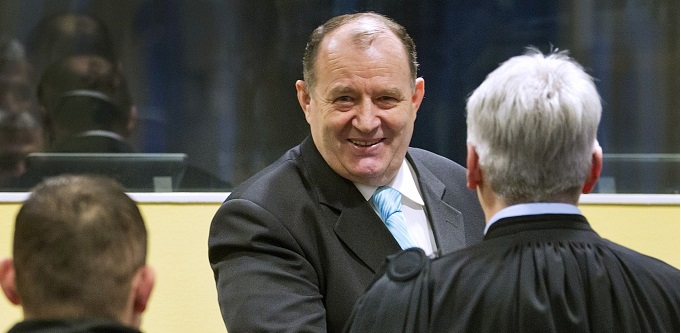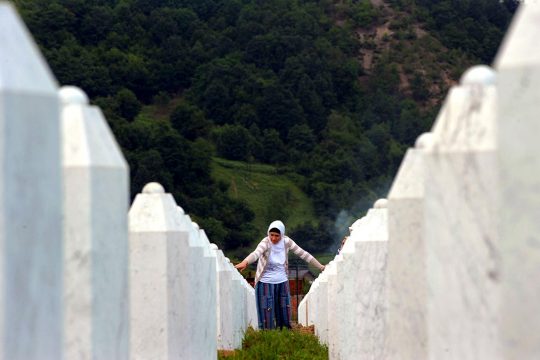The International Criminal Tribunal for the former Yugoslavia (ICTY) ended the first half of the year with an important judgment. Before packing their bags for the summer holidays, the ICTY appeals judges on June 30 confirmed the verdict and sentence against two former senior Bosnian Serb officials.
Rejecting all the defence arguments, the ICTY Appeals Chamber confirmed the convictions of former Republika Srpska Interior Minister Mićo Stanišić and of Stojan Župljanin, former head of the regional security services of Banja Luka (Bosnia‑Herzegovina). Both men, said to be close to their political boss Radovan Karadzic, were found guilty of war crimes and crimes against humanity committed in Bosnia‑Herzegovina in 1992, in 20 and 8 municipalities respectively. Their sentence of 22 years in jail also remains unchanged.
Also in the news was the French justice system, which embarked on the last stage of its second trial related to the Rwandan genocide of 1994. The two accused, Octavien Ngenzi and Tito Barahira, were successive mayors of the rural commune of Kabarondo. On Friday, public prosecutor Philippe Courroye told the court that the two men were key figures in the genocide in this eastern Rwandan commune. Ngenzi, who was mayor at the time of the genocide, was “the chief of staff, the one who directed it”, while Barahira was “an executor, an officer of the machete”, Courroye said.
Will the outcome of this trial calm the rancour of Kigali, which accuses Paris of having played a role in the genocide and provided sanctuary to perpetrators?
France was also the target this week of new accusations on its links with former Chadian dictator Hissène Habré, who was on May 30 sentenced by a special African court to 20 years in jail for crimes against humanity. In two reports, Human Rights Watch described how Paris and Washington helped Habré take power, even though they knew he used brutal methods. Both countries considered Habré a rampart against the expansionist aims of Muammar Gaddafi’s Libya. Paris and Washington continued to support the Habré government, although they knew it was committing mass human rights violations. “These two countries should examine how and why they supported a man who has now been convicted for crimes against humanity,” said Reed Brody of Human Rights Watch.
Another former African Head of State who is a subject of transitional justice debate is Ivorian Laurent Gbagbo, currently on trial before the International Criminal Court (ICC). Ivorian novelist and playwright Bernard Dadié, now 100 years old, and former Togolese Prime Minister Joseph Kokou Koffigoh have launched a campaign aiming to get 20 million signatures on a petition to free “an African hero” (Gbagbo). But, as Ivorian jurist Alfred Goré Bi told JusiceInfo’s Abidjan correspondent Wilane Paté, “a petition has no value before a court”.
And finally, a Resolution adopted by the UN Human Rights Council on Friday calls for an African investigation, supported by the international community, into human rights violations in Eritrea, some of which could qualify as crimes against humanity. Could we be moving towards the creation of a special court, like the one that has just convicted Hissène Habré?







